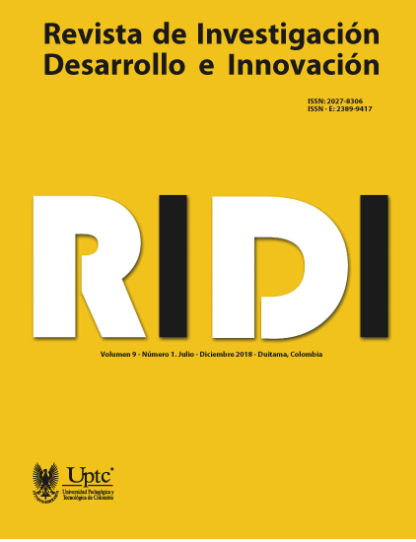The teaching of design in front of the violence of the project

Abstract
The designs have always been in front of the violence of the Project. Since it is applied to the human, in the commercial invasions of the Renaissance or guillotining history in the bourgeois revolutions, it was necessary that the project itself be revealed to remember the humanist sense, -for the search of the legitimacy of the autonomy of the human being-, which it contains within itself as the ideal of applied reason. The history of design showed it that way until the end of the last century. But this violence has changed; it no longer applies only to imposing the results as calculations of domination of the other —to obligate the other to submit to the logic of the projects—, at present the project has turned into self-violence, —there is no subject if it is not a project— much more effective as an aggression of absolute submission, although it retains its promise of freedom. This change must be kept in mind for the design proposals that must be carried out now to maintain the dignity of each and every one of the subjects, before becoming mere projects of themselves. And, of course, this must have its correlate in the learning of the design and in the pedagogical criteria that may be applied: the teaching of design in front of the violence of the project.
Keywords
design; project; violence; reflection in/on the action; educative process.
Author Biography
Miquel Mallol-Esquefa
Diseñador, Doctor en Filosofía.
References
Adorno, Th.W. (1958). Der Essay als Form. En: Noten zur Literatur I. Frankfurt am Main, Suhrkamp Verlag. 9-49.
Boutinet, J. P. (1989). Histoire et projet. En: Pineau, Gastón et Jobert, Guy. (coords.) Histories de Vie. Paris, Francia: L’Harmattan.
Boutinet, J. P (1987). Anthropologie du projet. Paris, Francia: Presses universitaries de France.
Chartier, A. (1902). Discours au Lycée Corneille. En: Lycée Corneille de Rouen, discours prononcé par Emile Chartier (Alain) à la distribution des prix du 31 juillet 1902. Recuperado de: http://alinalia.free.fr/spip.php?article19&var_recherche=Discours%20au%20Lyc%C3%A9e>
Condiza-Plazas, W. (2014). Percepción del concepto de dignidad humana en los estudiantes de la Universidad Pedagógica y Tecnológica de Colombia, Sede Duitama. Revista de Investigación, Desarrollo e Innovación, 4(2), 124-137. doi: https://doi.org/10.19053/20278306.2962
Dussel, E. (2018). Siete hipótesis para una estética de la liberación. En: Praxis, Revista de filosofía. 77. Recuperado de: http://dx.doi.org/10.15359/praxis.77.1>
Flusser, V. (2015): El universo de las imágenes técnicas - Elogio de la superficialidad. Buenos Aires, Argentina: Caja Negra Editora. Primera edición 1985.
García-Solano, H., Barajas-Sepúlveda, D., & Alarcón-Aranguren, L. (2014). Experimentación de materiales, un camino para la sustentabilidad en el diseño. Revista de Investigación, Desarrollo e Innovación, 4 (2), 87-94. doi:http://dx.doi.org/10.19053/20278306.2963
Han, Byung-Chul (2016): Topología de la violencia. Barcelona, España: Herder Editorial, S. L. Primera edición en alemán, 2011.
Kilpatrick, W. H. (1918). The Project Method. The Use of the Purposeful Act in the Educative Process. Teachers College Bulletin Vol. Tenth Series, núm. 3. New York: Teachers College, Columbia University.
Mallol-Esquefa, Miquel (2017a): Critical Design Methodology and Identitary 'Empowerment'. Learning from a Feminist Perspective. Investigación Arte Creación. 5, (3), 254-271. doi: http://dx.doi.org/10.17583/brac.2017.2346.
Mallol-Esquefa, M. (2017b). Diseño en las crisis. Hacia una visión política del diseño. Correa Ortiz, D. & Vélez Espinosa, C. (compiladores). Estudios del diseño. Estética comunicación y proyecto. Medellín, Colombia: Editorial Universidad Pontificia Bolivariana.
Silva-Cañaveral, S. (2016). La investigación-creación en el contexto de la formación doctoral en diseño y creación en Colombia. Revista de Investigación, Desarrollo e Innovación, 7 (1), 49-61. doi: https://doi.org/10.19053/20278306.v7.n1.2016.5601
Sini, C. (1989): Pasar el signo. Madrid: Mondadori España, S.A. (Ver especialmente III.68 — “Técnica: Eficacia y neutralidad de la técnica”). 365-369. Primera edición en italiano 1981.
Schön, D. A. (1992). La formación de los profesionales reflexivos. Hacia un diseño de la enseñanza y el aprendizaje en las profesiones. Madrid, España Ediciones Paidós Ibérica, SA./Ministerio de Educación y Ciencia. Primera edición en inglés, 1987.
Wukmir, V. J. (1967): Emoción y sufrimiento. Barcelona, España: Editorial Labor, S.A.
Žižek, S. (2018). El acoso de las fantasías. Madrid, España: Ediciones Akal S.A.
Zuluaga-Duque, J. F. (2017). Relación entre conocimientos, saberes y valores: un afán por legitimar los saberes más allá de las ciencias. Revista de investigación, desarrollo e innovación, 8 (1), 61-76. doi: 10.19053/20278306.v8.n1.2017.5973